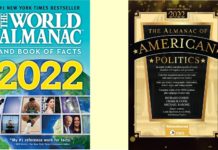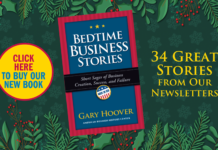|
I majored in economics at the University of Chicago. Three of my teachers later won Nobel prizes for their work, and we used some of their research (for which the prizes were awarded) in class. It was an amazing place to be at an amazing time.
So it should be easy to understand that I believe the "economic way of thinking” is a very powerful and helpful way to understand the world. In my book I talked about how Gary Becker, another Nobel-winning Chicago economist, has broadened the uses of economics to look at discrimination, marriage, crime, punishment, and other parts of our lives which were not historically the purview of economists. (Traditionally economics is best defined as the study of the allocation of scarce resources. But many people thought it was only about money.)
As much as I find economics helpful to clear thinking – on everything from business issues to how to understand public policy issues like the drug war and health care reform – I also get discouraged at how few people understand how economists think. For example, it stuns me how little business people know about economics and the economic way of thinking.
The broadcast and cable media isn’t much help here – when they have an economist on, they are talking about just one issue, not how they think. They talk about what their research leads them to believe, not the process of research and thought that got them to that conclusion.
But economists have an incredible power to look at things logically, to really go deep and understand how the world works, and therefore how best to make the world a better place. They have plenty of ideas about how to solve the world’s problems. And unlike public perception, most economists agree on many of the key issues. For example, most economists would tell you that minimum wage laws are awful for low income people. There is a lot of evidence to support this. But politicians keep putting minimum wage laws in place because they sound good, because people think they help low income people, when they probably do just the opposite.
Anyone trying to understand economics can read one of the bestsellers like Freakonomics, which is an interesting and fun book but not really very comprehensive. (The same authors just released Superfreakonomics.) You can read an econ textbook, which is likely so full of jargon and formulas that it would take forever to read. But there are not many books which give you a good introduction to the basic ideas.
There is one book, now in its 16th edition, that I have been reading for at least 30 years. It is the best book for understanding how economists think on a huge array of issues. And it is focused on real world political issues and controversies, so it is very interesting to any intelligent citizen. And, unlike those textbooks, it costs less than $30! It is also a slim volume full of short chapters, and you can read just the chapters you want to read.
That book is The Economics of Public Issues by Roger LeRoy Miller, Daniel K. Benjamin, and Douglass C. North (Addison-Wesley/Pearson, the current 16th edition carries a publication date of 2010 so they jumped the clock).
I have never met Washington University’s Mr. North, who turns 89 today, but I sure would like to. Not only has he helped write this book for all these years, but he has written many other books and done some amazing thinking and research. Most interestingly, he shared the Nobel Prize with my old teacher Robert Fogel (also in his 80’s and still hard at work) in 1993. But – here comes the amazing part – nowhere in or on this book can I find mention of his being a Nobel Prize winner. Either he is a very modest man or his publisher has no publicity department!
The book itself has 32 chapters which cover every major public issue you can think of, as seen through an economist’s eyes, including ethanol subsidies, airline safety, prohibitions on drugs, the selling of human organs, taxes, immigration, big oil, the rising costs of college tuition, antitrust, the mortgage “meltdown,” endangered species, pollution, climate change, and globalization.
Whether you start out agreeing with their conclusions or not, I hope you will be challenged by what they say, and it may make you at least rethink your prior beliefs. Economic logic will often lead you to counter-intuitive conclusions (like organ selling is a good idea that will save lives). At the very minimum, you will get a better idea of how all those Nobel Prize winners would react to currently controversial issues by reading this book than by reading any other book.
|
|












Hi Mr. Hoover,
Every time I visit you in your office, I hear you talking about how you’re working on your blog. We just talked about books in our last meeting and I’m so glad this is what your blogs are about. My winter break reading list seems like it’s going to be quite long (because you know I’m trying to find what my true “passion” is). In our next meeting, we’ll have to talk about how you manage to read all these books in your busy schedule!
– Sorah
Sorah, you can look back in my April blogs to see my piece about how to digest a book quickly. It is the most downloaded item from my website.
Gary
Comments are closed.